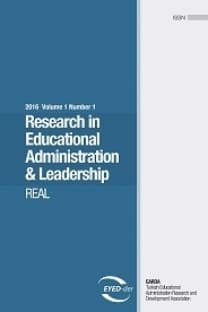New Beginnings, Repeated: The Continuing Search for Educational Leadership
The purpose of this scholarly essay is to offer a number of logics of academic arguments as follows: leadership as contested/seductive theories, leadership as an organizing activity, and leadership as praxis. Each academic argument presents its own theoretical, communicative and practical challenges, often necessitating a beginning again in search of leadership’s ontological status; that is, in what sense is leadership real? Methodologically, the authors rely on asking pragmatic and constructivist questions (i.e. what difference does it make?) regarding problematic relationships among diverse researchers and between themselves and practitioners. With some amount of courage and a great deal of ignorance, the authors jump into the rabbit hole of relational sociology, leaving answers as next steps to the wisdom of our readers
Keywords:
Pragmatism, Organizational Theory Ambiguity, Uncertainty, NonPredictability,
___
- Agosto, V., & Roland, E. (2018). Intersectionality and Educational Leadership: A Critical Review. Review of Educational Research, 42 (1), pp: 255-285 Allen, K., Stelzer, S., & Wielkiewicz (2017). THE ECOLOGY OF LEADERSHIP: Adapting to the Challenges of a Changing World https://kathleenallen.net/wp-content/uploads/2017/12/TheEcology-of-Leadership.pdf Bacharach, S. (1989). Organizational theories: Some criteria for evaluation. Academy of Management Review, 14(4), 496-515. Barth, R.S. (1990). Improving Schools From Within: Teachers, parents, and principals can make the difference. San Francisco, CA: Jossey-Bass Publishers. Bauer, S. (2019). Weick’s organizing. In Johnson, B. & Kruse, S. (eds), The Contributions of Karl Weick to the study of education organization. London: Routledge. Bauer, S. & Brazer, S.D. (2012). Using research to lead school improvement: Turning evidence into action. Los Angeles: Sage. Bogotch, I. (2015). Unraveling the leadership-management paradox. In F. English & R. Papa (Eds). The SAGE Guide to Educational Leadership and Management. Introduction (pp. 3-20). Sage publishers
- Yayın Aralığı: Yılda 4 Sayı
- Yayıncı: Dokuz Eylül Üniversitesi
